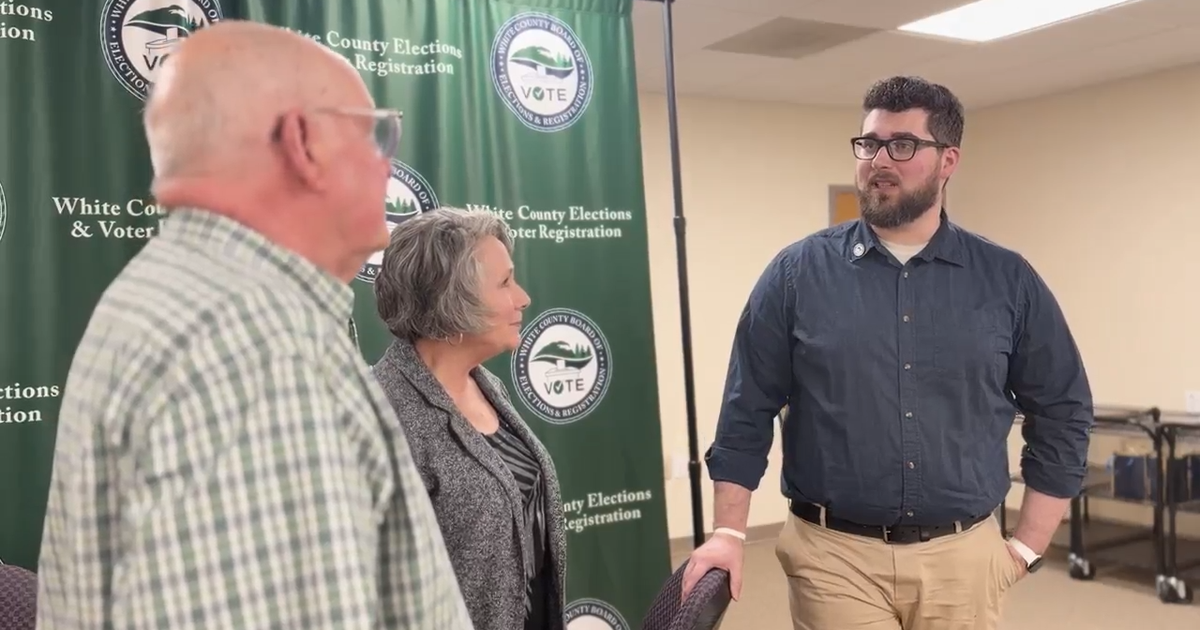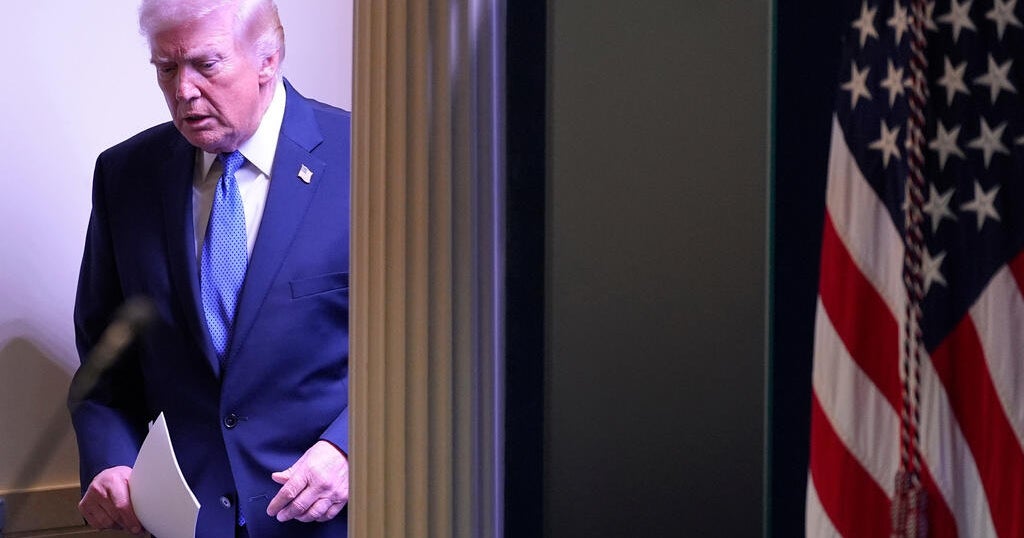DNC rejects resolution calling for climate change debate
San Francisco — Democrats and activists hoping to stage a presidential primary debate on climate change were dealt a significant blow on Thursday, when a party committee rejected a resolution that would have allowed candidates to participate.
Washington State Democratic Chair Tina Powdowlaski authored the resolution, which called on the Democratic National Committee (DNC) to let candidates appear on stage simultaneously in a debate focused on the issue. The proposal, presented to the party's resolution committee at the DNC's summer meeting in San Francisco, was defeated by a vote of 17 to 8.
"What you found [was] a section of individuals who wanted to be able to have a climate debate and talk about all the intersectional issues, whether that's jobs, whether it's health care, whether it's national security," Powdowlaski told CBS News. "And what they got was a big stop sign from the DNC."
The DNC allows candidates to participate in forums sponsored by outside groups, but only if one candidate appears on stage at a time. Several DNC members have pushed for a climate debate so candidates can appear on the same stage and demonstrate to voters what a Democratic administration would do to address the issue.
Christine Pelosi, a longtime DNC member who serves on the executive and resolution committees, introduced Podlodowski's resolution at a DNC meeting in June, but members tabled it until this week so members could have a chance to think it over. Pelosi presented the measure on Thursday.
During the discussion, several members questioned why the party should prioritize climate change over issues like gun violence, election security or black female empowerment. In response, Pelosi introduced an amendment that would allow candidates to engage in issue-specific debates related to the party's platform to gauge what appeals to voters ahead of next summer's Democratic National Convention in Milwaukee.
The amendment was greeted with skepticism from members who said it was too late in the nominating process to implement it. They argued that more debates would force candidates to leave the campaign trail, and worried the format wouldn't allow for substantive discussions about any issue.
"I think this is dangerous territory in the middle of a primary process," said Symone Sanders, a member of the resolution committee and senior adviser to Joe Biden. "I absolutely support Christine's point about perhaps we should chop up our platform and our debates should be theme-focused. But frankly that is a conversation we should have had last summer."
Nearly all the Democratic candidates currently running have publicly supported a climate debate. The 10 candidates who have already qualified for the upcoming September debate will also participate in a CNN town hall about the climate crisis on September 4, but only one candidate can appear on stage at a time, which Powdalaski called "sort of ridiculous."
"None of the candidates can be on the same stage together," she said. "And the town hall themselves would be getting one-tenth of the viewership the debates have been getting. So the DNC has basically put a pin in how they feel about the No. 1 issue for voters 18 to 35."
After the resolution was rejected, a group of around 50 members of the Sunrise Movement, which pushes for action on climate change, stood up and began sing, repeating a chorus of "Whose side are you on?" before walking out. The youth-driven environmental advocacy group also protested outside the DNC headquarters in Washington during the first televised presidential debates in June.
Despite the rejection of the resolution on Thursday, Sunrise Movement communications director Stephen O'Hanlon said the group does not consider the idea "dead in the water."
"We're going to have hundreds of people in the streets tomorrow in downtown San Francisco to make it crystal clear to all of the Democratic committee members, that our generation wants a climate debate. And if they want young people to be energized and excited to turn out and volunteer and knock on doors in 2020, this is a no-brainer," he said.
A resolution for a climate debate could be brought to the full floor on Saturday, but it's likely to be unsuccessful. Powdowlaski said it will be up to the candidates to push for a climate debate if the last-ditch effort fails.
"When it comes to the intersectional aspects of climate, it can be an issue that is tough for people to wrap their heads around. And so they don't, and they get afraid," she said. "What DNC chair Tom Perez ended up saying is that, you know, 'I would rather have reality TV-style debates where people are talking for one minute and then looking silly on TV, than having substantive discussion on the issue.'"



